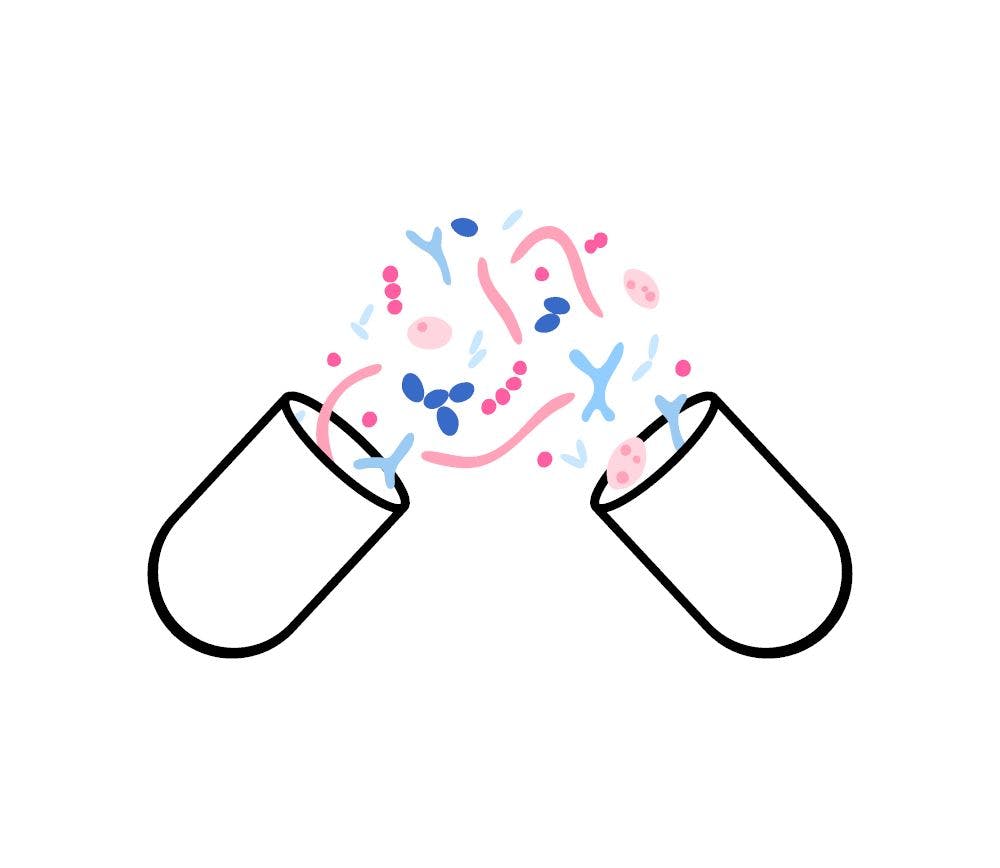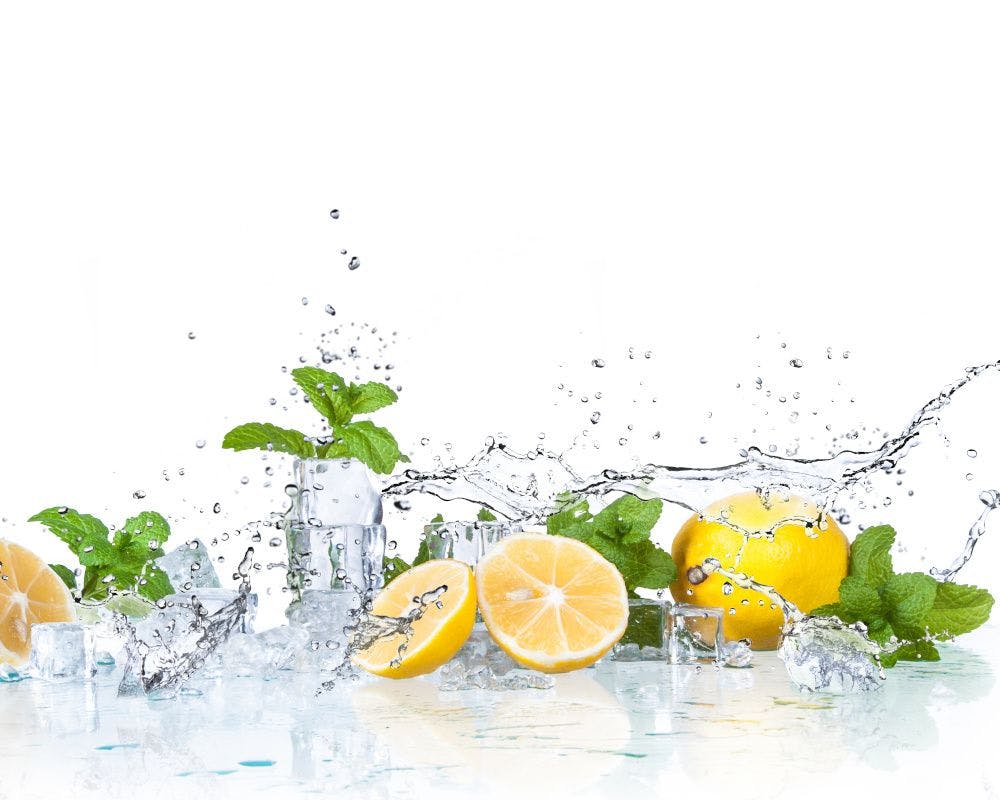Make It Tasty: Consumers want sugar reduction, but they still won’t compromise on taste
Sweeteners suppliers continue to innovate sugar replacers that still achieve great taste, texture, mouthfeel, and functionality.
Photo © Nataliia Pyzhova - Stock.adobe.com

While it’s probably safe to say that sugar isn’t the devil himself, somewhere between the transport of sugar cane plants to the Caribbean by Christopher Columbus in the 15th century AD1 and the anti-sugar campaign launched in the UK by celebrity chef Jamie Oliver in 20162, added sugars became villainized as a close cousin of Lucifer.
Despite sugar’s long history of popularity followed by its fall from grace, there is no doubt that sugar “is an important ingredient in food manufacturing,” as food market researcher Spoonshot states, because of its great taste and contribution to “texture, bulk, mouthfeel, aroma, color, and a number of other attributes of food.”3
However, Spoonshot also recognizes the last decade as a turning point for a growing number of voices calling for the reduction in the amount of dietary sugar in order to improve the overall health of the population, noting the chronic conditions potentially linked to excessive sugar consumption. “This [call to action] has resulted in the evolution of an entire industry in the space of sugar replacement and reduction solutions, researching new technologies and ingredients to use for this cause,” according to Spoonshot.3
The challenge—and the opportunity—for ingredient suppliers and food manufacturers has always been figuring out how to help consumers viably reduce sugar consumption in their diets without having to sacrifice taste and texture.
And so natural sweeteners have become a competitive market as companies explore new types of sugars, sugar alternatives, flavorings, and other sugar-reduction tactics, all the while relying on new technologies that can help consumers be healthier without mourning the reduction of sugar.
“A number of important trends are impacting the natural sweeteners category,” says Christina Matrozou, global senior marketing manager, Tastesense, for ingredient supplier Kerry (Tralee, Ireland). “The pandemic has clearly made protecting personal health a top priority for the public. Following the last two years of the COVID pandemic, health is a top-of-mind concern for consumers who have reevaluated their dietary habits and looked to make improvements to their eating and drinking patterns. Sugar consumption has definitely been in the spotlight for consumer concerns because of the long-term negative effects that it can have on health.”
Leaving Artificial Sweeteners Behind?
Carla Saunders, senior marketing manager, high-intensity sweeteners, Cargill (Minneapolis), advises that “natural sweeteners have gained in popularity as consumers continue to move away from artificial sweeteners.” Statistics show, she states, that half of American consumers say that “no artificial sweeteners” is an extremely or very important statement on food and beverage labels. She adds that one in five (23%) say they’d prefer to pay more for products made without artificial sweeteners.4 “This desire to avoid artificial ingredients reflects broader trends around clean eating as consumers continue to seek out products made with familiar ingredients perceived as less processed and healthier,” says Saunders.
However, she adds, “while consumers may be avoiding artificial sweeteners, they still expect reduced-sugar foods and beverages that taste great. That’s why zero-calorie sweeteners like stevia continue to make significant gains.”
And for those still harboring concerns about sugar substitutes, Saunders says this: “More than 200 studies affirm stevia’s safety, as do leading food safety and regulatory agencies, including the Joint FAO/WHO Expert Committee on Food Additives, the European Food Safety Authority (EFSA), and the U.S. Food and Drug Administration.”5
Abigail Storms, global head of sweeteners, Tate & Lyle (London), advises that the global stevia market was estimated to be worth around U.S. $750 million in 2021. Forecasts predict that by 2026 it will grow to over U.S. $1 billion.6 Saunders shares that U.S. retail sales of stevia-sweetened beverages alone totaled $1.4 billion between 2017 and 2021, growing at a CAGR of 11.6%.7
Stevia “is a perfect way to address sugar reduction and meet consumers’ expectations in the ‘natural’ space,” says Storms. Almost half of European consumers recognize stevia as a natural product. Further, she points to the same report that found there is also an increasingly positive attitude from consumers towards stevia, with more than half of North Americans perceiving juice products containing stevia as healthy, natural, and tasty, and with nearly half going so far as to call stevia sweeteners “exciting.”8
“Given a choice,” says Storms, “most people gravitate toward the natural foods or ingredients over the artificial—and, more recently, the consumer tendency to look for natural alternatives is even stronger.” She says that what consumers choose “is based on personal preferences, especially related to the taste and perception of the different alternatives available in the market.”
Cutting Sugar Consumption While Saving the Planet
Consumers are also looking for sustainable options. “Our Tastesense solutions are differentiated by their proven ability to deliver sustainability benefits through reducing the amount of water needed to produce sugar from cane or beets, lowering the amount of calories in the product and also dropping carbon emissions through this process. We have conducted technical life cycle assessments that confirm these savings,” says Kerry’s Matrozou.
In fact, in February 2021, Kerry released a technical report that used life cycle assessment (LCA) to quantify the environmental and nutritional benefits of Kerry’s Tastesense Sweet when it enables a reduction in the sugar content of a range of foods and beverages.9
Not only did the assessment find that manufacturers would be able to reduce sugar cane usage, but from a sustainability point of view, the benefits from reducing the use of sugar demonstrated a 30% reduction in both water usage and calories, and a 20% carbon emissions reduction, according to the press release.9
“All over the world, sugar reduction is a key focus of government policymakers and food/beverage producers, not to mention consumers seeking to improve their general health…,” said Otis Curtis, global portfolio director, Tastesense, Kerry, in a press release. “What this life cycle assessment and analysis show is that, aside from the significant health challenges posed by excessive sugar consumption, the production of sugar exacts a large environmental toll in terms of water usage and carbon emissions. Therefore, reducing the consumption of sugar has impressive health and environmental benefits.”9
Not discounting consumers’ insistence on great taste, Cargill’s Saunders says, “We recognize consumers—and our customers—are increasingly concerned about sustainable, ethical sourcing. It’s a priority for us, as well.”
When Cargill entered the stevia market over a decade ago, stevia sustainability standards did not exist. “For this reason, we built the Cargill Stevia Sustainability Agricultural Standard from the ground up to ensure sustainable, ethical sourcing standards for our leaf-based stevia products,” she says.
Saunders explains that these standards offer field-to-finished-product traceability and peace of mind. “As part of these standards,” she says, “we meet with our growers every spring and review our sustainability standards. Then in the fall, we use an independent third-party to confirm that those practices are being followed.” With traceability built into the system, adds Saunders, “[it enables] us to trace back every lot of stevia we [source] to the farmers and cooperatives who planted the crop.”
At the same time, according to Saunders, Cargill is pioneering even more sustainable approaches to stevia production. For example, with Cargill’s premier stevia sweetener, EverSweet, Cargill uses “fermentation to produce the sweetener—enabling commercial-scale production with less water, less land, and a smaller carbon footprint,” she advises. According to Saunders, these environmental benefits were confirmed by the company’s published life cycle analysis.10
Tate & Lyle, too, views sustainability as core to its business practices.11 Storms says, “Consumers are paying greater attention to the supply chain, including sourcing, production, and packaging, so this should be an important factor when choosing sweeteners.” She advises that Tate & Lyle is working with stevia growers in China to lower their environmental impact as part of a new sustainability program with Earthwatch, an NGO based in the UK.12
Some Firsts and Foremosts
One of the first things you’ll note about Icon Foods’ website is that its CEO, Thom King, has an interesting story. The fact that he is “Not Your Typical CEO” is hard to miss. Read on, and you’ll discover he’s part CEO, a little bit personal development wonk, and also a little bit biohacker info geek. He founded the company in 1999 as a way to effectively help combat “diabesity”—a term he claims he coined to describe the epidemic in America that combines diabetes and obesity—through clean-label sweetening systems to replace sucrose and high-fructose corn syrup.13
Late last year, Icon Foods launched two natural extracts, ThauSweet and CitruSweet, which “offer the latest advances in the alternative-sweetener arena,”14 the company says. Although CitruSweet is not currently available, King advises that “sweetness modulation systems like ThauSweet are really gaining momentum as more and more companies are trying to extend sweetness without increasing sugar.”
ThauSweet overcomes the problem that non-sugar sweeteners often face which is that while they deliver sweetness quicker than sugar, they also dissipate equally rapidly, thereby leaving afternotes that makes the taste experience less than ideal.14 Says King, “ThauSweet is not a masking agent, so it doesn’t mute flavors as much as it extends the sweet technical effect that can extend over off-notes in some formulas.”
Derived from proteins within the katemfe fruit of West Africa, ThauSweet boosts the capabilities of such sugar substitutes as stevia and monk fruit to create a lingering sweet effect. In addition, ThauSweet is naturally produced, so it fits into a clean-label strategy.14
It’s when King talks about Icon Foods’ flagship sweetening systems that you get the feeling there is another part of him that is mad scientist, but in a good way. IconiSweet, a blend of allulose, erythritol, stevia, and monk fruit, is Icon Foods’ flagship sweetening system, he says. According to King, IconiSweet’s “greatest success is in frozen desserts, where the erythritol drives down freezing depression point; the allulose raises overrun, making for a creamier mouthfeel; and the perfect ratio of monk fruit extract and stevia make the whole system a plug-in replacement for sugar.”
Another category where “IconiSweet performs perfectly,” King says, “is sweet baked goods. The allulose participates in Maillard [reaction] and activates leavening, while the erythritol prevents the allulose from burning. The high-intensity sweeteners make the sweetness on par with sugar.” However, he advises that “IconiSweet does not show up on the nutritional facts panel as a sugar, giving manufacturers the ‘no added sugar’ claim.”
Icon has also “been doing more innovation in the inclusion category, including chips, sprinkles, and,” says King, “our latest—a no-added-sugar, candy-coated chocolate inclusion” which he claims is similar to an M&M.
Ingredient supplier Sweegen (Rancho Santa Margarita, CA) also has some recent sweet successes to report. In early 2022, the company announced its newest advancement in sweetness: the high-intensity sweetener brazzein, a protein sweetener that promises little to no bitter aftertaste and helps reduce sweet linger, thereby reducing the taste challenges that have historically been a problem in the natural sweeteners space. Sweegen’s branded ingredient, Ultratia brazzein, is ideal for sugar reduction across various food and beverage applications.15
According to Casey McCormick, vice president of global innovation, Sweegen, “We’ve had tremendous interest in our Ultratia brazzein for use across all segments of food and beverage. While brazzein has not been commercially available up until now, it’s long been understood that it is highly soluble and has good stability at a low pH and in high-heat applications. These attributes, combined with being up to 2,000 times sweeter than sugar, make the ingredient appealing to manufacturers. Brazzein also pairs very well with our Signature Stevia to deliver solutions with a great taste that is cost-effective.”
McCormick also reports that Sweegen recently announced that “we will commercialize thaumatin I and thaumatin II in 2022 through our partnership with Conagen.” He adds that “like brazzein, thaumatin is a protein sweetener that occurs naturally in tropical plants” but that it has a higher sweetness intensity.
One thing that McCormick believes differentiates Sweegen from its competitors is its bioconversion process that he says “allows us to produce many of the naturally occurring rebaudiosides from the stevia leaf regardless of how low they occur in nature. This enables us to commercialize rebs such as E and I, with excellent sensory properties…” Sweegen’s utilization of sensory science creates sugar-like sweetness for these rebaudiosides, which are part of Sweegen’s expanding Signature Sweetener Portfolio along with other stevia offerings, brazzein, and thaumatin.
Cargill announced the commercial launch in March 2022 of its newest sweetener system, EverSweet + ClearFlo, a product of Avansya, a joint venture of Cargill and DSM (Parsippany, NJ). “This sweetening system takes our best-tasting stevia and combines it with a natural flavor,” says Saunders, resulting in advances in taste, flavor, mouthfeel, and other functionality such as solubility and dissolution.
According to Saunders, formulators will especially appreciate the latter two. While Reb M stevia products like EverSweet provide the best stevia sweetness profile, their lower solubility has limited their use in applications that use concentrates to deliver sweetness, such as beverage syrups. In this regard, says Saunders, “EverSweet + ClearFlo is a game-changer as it dramatically boosts solubility and stability, enabling far more concentrated solutions than Reb M alone.”
She adds that “the improved solubility opens the door for stevia to be used in applications like foodservice fountain drinks and flavor syrups—places stevia has never gone before. And unlike standalone Reb M sweeteners, our new sweetener system dissolves in water at ambient temperatures—no heating required.”
She also points out that this new sweetener supports simple label declarations. In the U.S., EverSweet can appear on ingredient statements as stevia sweetener; ClearFlo labels as a natural flavor. “Our proprietary research consistently finds consumers approve of these straightforward designations,” says Saunders.
Last November, Kerry introduced the first organic-certified sweet modulator for the U.S. beverage market, Tastesense Sweet Organic Certified. The ingredient delivers a clean, sweet taste, with excellent mouthfeel and a balanced flavor profile. Available in a powder form for easy addition and rapid dissolution, the ingredient is suited for applications including flavored sparkling water, low- and no-sugar beverages, functional and energy drinks, and both high- and low-ABV alcoholic beverages. The ingredient is clean for labeling purposes and can be listed on the label as natural flavoring.16
In a press release, Angela Getzel, business development director, Kerry, stated that “the North American market continues to move toward beverages with clear, clean-label claims. Product marketers and formulators alike are looking intently at organic ingredients. There is a significant opportunity to serve the growing market for refreshing, organic beverages. Tastesense Sweet Organic Certified not only brings the sweetness but also adds the important mouthfeel perception—often missing when sugar content is reduced or eliminated. This organic solution enhances the overall flavor profile of a beverage to deliver a holistic taste experience.”16
Matrozou says that consumers tend to perceive organic as healthier than other foods and beverages, according to the company’s research. “We expect that the desire and craving for organic products will continue as consumers continue to prioritize their overall health as a result of two years of pandemic,” she states. Matrozou says that in the past, organic product consumption was generally associated with higher income segments, but it appears now that more consumers are willing to pay extra for organic products. Kerry’s proprietary 2022 research study on health and sustainability found that “choosing between price and health is a difficult balancing act; however, two in three consumers would prioritize health and pay the higher price,” she reports.
“What this means for Kerry,” adds Matrozou, “is that we need to provide ingredients and application expertise to help our customers deliver on increasing consumer demands for healthier products and organic variations.”
Tate & Lyle believes that part of its job is to share its knowledge and solutions with customers and potential customers to create products that consumers love while still meeting their demand for low sugar content. To that end, says Storms, “We have launched the Tate & Lyle Sweetener University webinar series which offers guidance and expertise from our team of experts to help customers overcome the sugar- and cost-reduction challenges [while] maintaining a sweet taste profile without affecting a product’s quality.”17
Great Taste Remains a Priority for Industry, Consumers
Kerry’s research report “Taste Trends” most recently confirmed that while physical health and personal wellbeing drive consumption, there is still one demand consumers won’t compromise on: great-tasting food and beverages. This expectation, according to Matrozou, is “also happening across the zero-sugar, plant-based, and diet-/lifestyle-friendly category options.” Consumers are looking for “acceptable sweetness” in products touting lower sugar, reduced sweetness, and clean-label sugar alternatives, she adds. “Products delivering on these consumer desires are gaining increasing attention and significant interest in the marketplace.”
Tate & Lyle’s Storms notes that “despite their need for a healthier diet, 88% of consumers still say that taste has the greatest impact on their food and beverage purchases.”8 Consequently, “manufacturers must strike a fine balance between reducing sugar content without losing the qualities that consumers love. The overall taste experience is complex, and there are many sensory and technical aspects that need to be considered such as sweetness quality, texture dimension, bulking impact, and mouthfeel experience.” And so the work continues.
Supply Chain, Health, and Efficiencies Key to the Future
King of Icon Foods says there is more stabilization of supply chains happening right now in the sweeteners space. But he warns that industry may also be “bracing for another potential supply chain disruption because of the war in Ukraine, which could reduce corn supply by up to 15%. Corn is the substrate for making most sweeteners. There could be supply chain issues coming in early August.”
Cargill’s Saunders maintains that “now more than ever, consumers are looking to manage their overall wellbeing through foods and beverages. Reducing sugar intake is certainly a part of that, and a priority for many.”
From Spoonshot’s perspective in its report, there are these predictions: “What we expect to see in the space of sugar reduction/replacement in the coming years is a move away from looking for a single alternative ingredient. Instead, we’ll see greater acceptance of a combination of ingredients that will perform the functional and sensory roles of sugar. These combinations will likely also change depending on category and specific requirements.”3
“While this is likely to push up costs for manufacturers and maybe even prices for consumers,” according to the report, “it is only a matter of time before more efficient processes emerge to increase production yield of these ingredients. We’re already seeing this happen for more prohibitively expensive ingredients with potential. Improved efficiency will definitely help bring down these costs in time.”3
That’s sweet news indeed to industry and consumers alike.
References
- “History of Sugar.” Making Sense of Sugar website.
- Smith M. “Allergic to Innovation? Dietary Change and Debate about Food Allergy in the United States.” Proteins, Pathologies and Politics: Dietary Innovation and Disease from the Nineteenth Century (Chapter 3). London (UK); New York (NY): Bloomsbury Academic (2018)
- White paper. “Sugar Reduction: A Bittersweet Pill.” Spoonshot.
- HealthFocus International report. “USA Shoppers’ Journey Towards Living & Eating Healthier.” Published 2020.
- “Stevia: A Great Ally to Control Calorie Intake.” International Stevia Council website.
- Statista report. “Estimated Size of the Stevia Market Worldwide from 2020 to 2026, By Category.” Published February 2021.
- Nielsen. U.S. data ending October 9, 2021.
- Mintel report. “Trends and Innovation in Sugar Reduction.” Published December 2021.
- Press release. “Life Cycle Assessment of Kerry’s Tastesense Sweet Quantifies Sugar’s Environmental Impact.” Kerry website. Published February 18, 2021.
- Press release. “Life Cycle Analysis Finds Cargill’s EverSweet Stevia Sweetener Proves to Be ‘Sweeter’ to the Earth than Other Stevia Options.” Cargill website. Published May 24, 2021.
- “Caring for Our Planet.” Tate & Lyle website. https://www.tateandlyle.com/purpose/caring-for-our-planet
- Press release. “Tate & Lyle Launches New Programme to Support Sustainability of Stevia.” Tate & Lyle website. Published July 8, 2021.
- “Thom King Is Not Your Typical CEO.” Icon Foods website.
- Press release. “Icon Foods Offers Latest in Sweetness Modifiers for Clean-Label Food and Beverages.” Published January 20, 2022.
- “Sweegen Blazes New Territory in Sugar Reduction with Forward Progress in Brazzien.” Sweegen website. Published January 31, 2022.
- Marrapodi A. “Kerry Launches Tastesense Sweet Organic Certified for Beverages.” Nutritional Outlook. Published November 22, Kerry company press release.
- Webinar. “Sweetener University Module 2 – Stevia Sweeteners.” Tate & Lyle website. October 21, 2020.

Prinova acquires Aplinova to further increase its footprint in Latin America
April 7th 2025Prinova has recently announced the acquisition of Brazilian ingredients distributor Aplinova, which is a provider of specialty ingredients for a range of market segments that include food, beverage, supplements, and personal care.




















